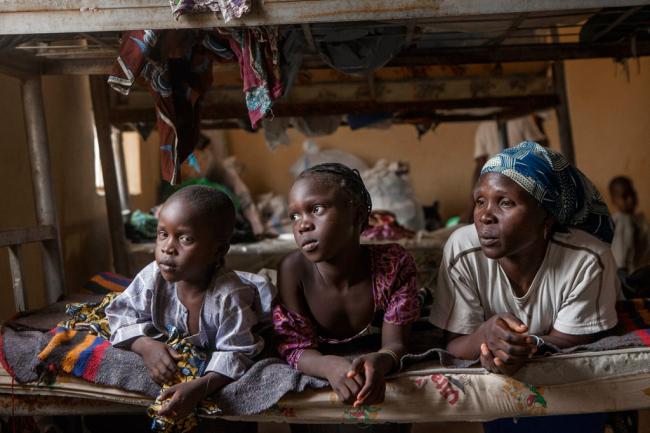
UN experts urge Nigeria to make areas freed from Boko Haram 'truly safe' for returnees
They also called for camps, both formal and informal, for internally displaced persons (IDPs), to be adequately protected, and stressed that all returns should be voluntary and coordinated.
The experts' appeal came after a series of brutal attacks by Boko Haram on villages in north-eastern Nigeria that included an attempt to storm an informal IDP settlement near the village of Dalori, where more than 90 people, predominantly women and children, are believed to have been killed.
In addition, according to reports, two female suicide bombers have attacked the site for internally displaced Nigerians at Dikwa, located some 90 kms west of the Borno capital, Maidugiri, killing more than 50 people and injuring dozens.
“We call on the Nigerian Government to plan carefully for any IDPs return, given the relentless attacks by Boko Haram in ostensibly safe areas,” said Maud de Boer-Buquicchio, UN Special Rapporteur on sale of children, who two weeks ago visited the Dalori camp, together with Urmila Bhoola and Dainius Pûras, the UN Special Rapporteurs on slavery and on health respectively to examine the efforts to reintegrate and rehabilitate women and children abducted and abused by Boko Haram.
“These attacks put yet another strain on already depleted resources to cater for the need of the existing displaced individuals and add enormous anguish to women, men and children who are already traumatized by the horrendous abuses and unspeakable cruelty at the hands of Boko Haram which has caused immense suffering,” de Boer-Buquicchio said, underlining the IDPs' extreme level of vulnerability.
“We urge the Nigerian authorities to do more to stem the wave of recent violence,” she underscored.
While noting the Government's announcement to reinforce security measures around IDP camps and civilian sites, Chaloka Beyani, the UN Special Rapporteur on the human rights of IDPs, condemned the cynical attack on people who have already lost so much, stressing that they must not be returned to areas lacking adequate security.
Child rights expert Benyam Dawit Mezmur, who currently heads the UN Committee on the Rights of the Child, reminded the Nigerian authorities that they must ensure the safety and security of civilians on its territory, and to address human rights abuses by third parties.
“The Nigerian authorities are legally obliged under international human rights law, in particular under the Convention on the Rights of the Child, which it has ratified, to take all necessary steps to respect, protect and fulfil the right to life of children, as well as ensuring their right to safety and security which among others, entails protecting them from violence, intimidation, sexual abuse and slavery,” Mezmur said on behalf of the Committee.
The UN experts also stressed that countering terrorism and addressing the Boko Haram threat will require more than military action, and urged the authorities to publicly pledge to hold to account all those who have committed human rights violations – including, but not limited to, Boko Haram.
The conflict in northeast Nigeria, including Boko Haram attacks, has in recent years forced more than 2.5 million people to flee their homes, including more than 2.1 million displaced within the country. About 10 per cent live in camps and the rest with host families.
About 1.6 million of these internally displaced people are in Borno, where many live in sites like Dikwa, which is home to 70,000 displaced people. Dikwa, one of the hardest hit of the 27 local government areas of Borno, has so far remained inaccessible to the UN refugee agency and partners because of insecurity.
Photo: UNICEF/Abdrew Esiebo
Support Our Journalism
We cannot do without you.. your contribution supports unbiased journalism
IBNS is not driven by any ism- not wokeism, not racism, not skewed secularism, not hyper right-wing or left liberal ideals, nor by any hardline religious beliefs or hyper nationalism. We want to serve you good old objective news, as they are. We do not judge or preach. We let people decide for themselves. We only try to present factual and well-sourced news.







